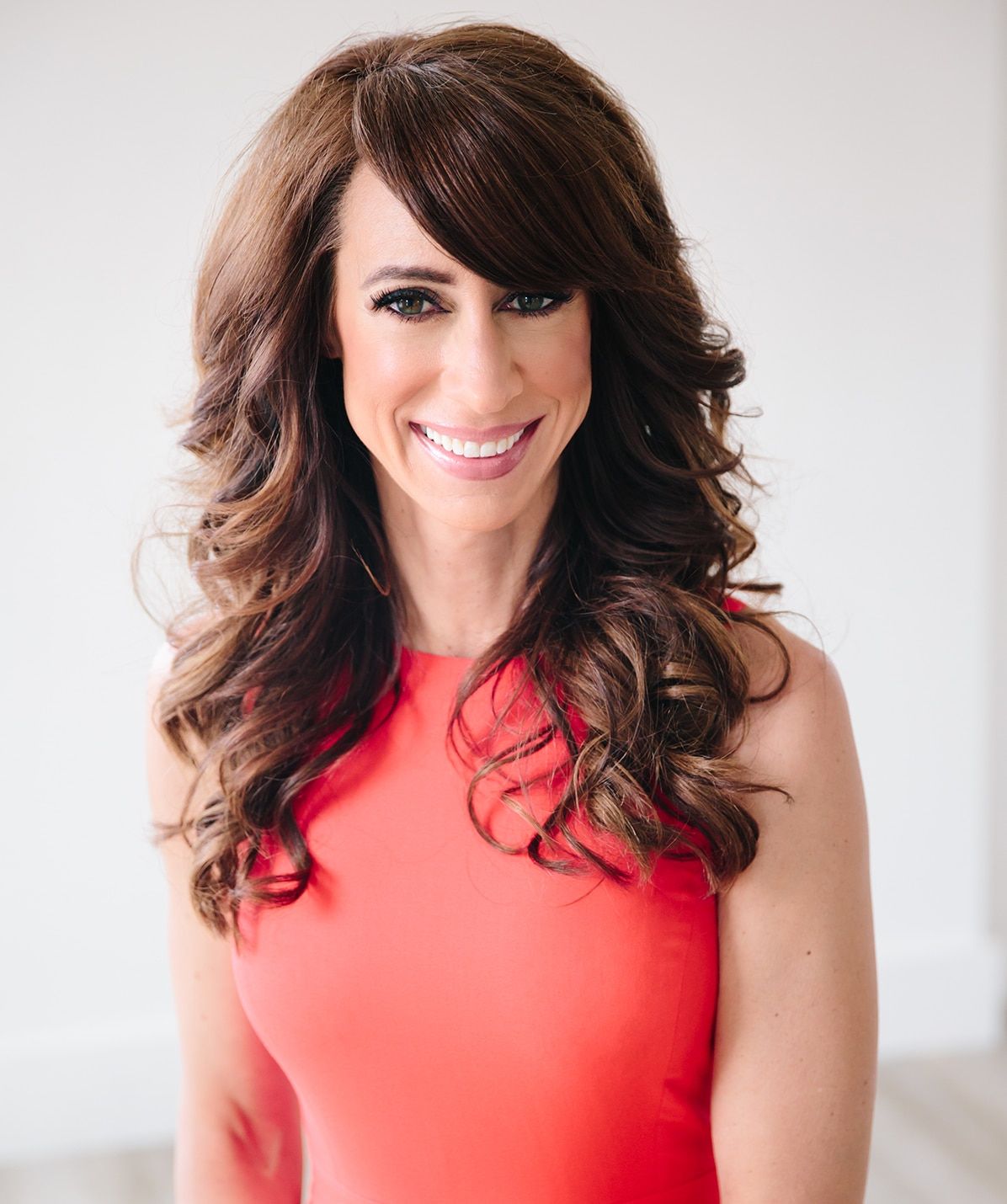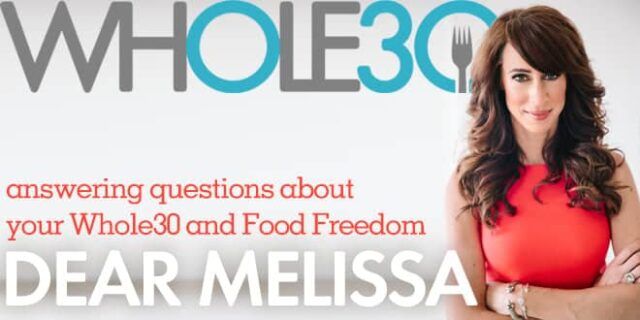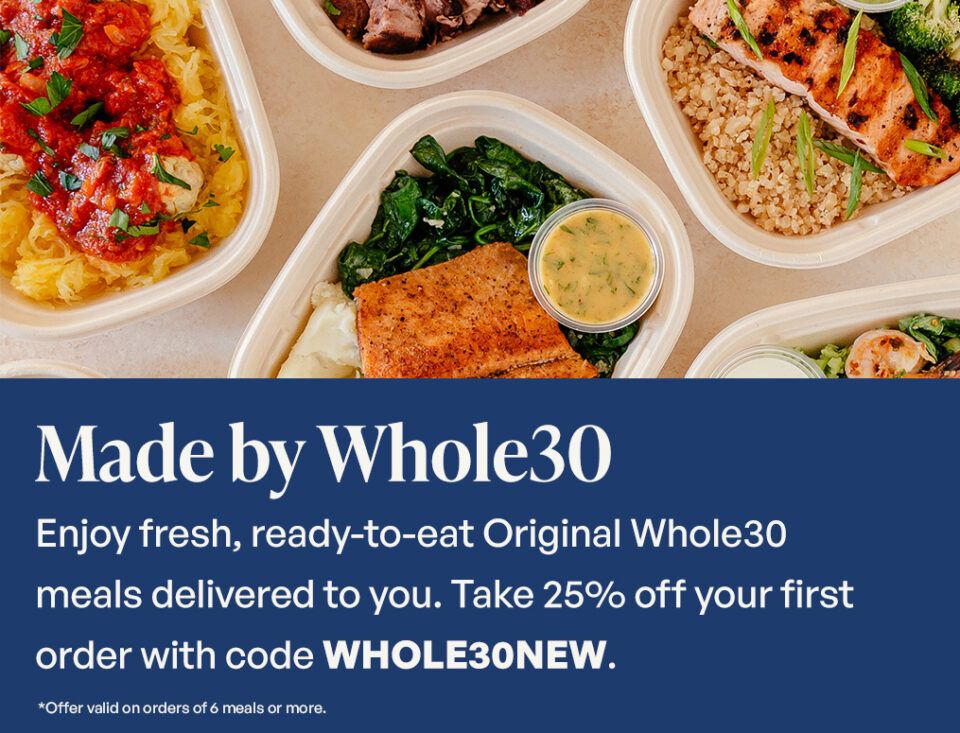Dear Melissa,
Since completing a Whole30 in January 2013, I have been eating a (mostly) Whole30-inspired diet and have never felt better. My family and friends have noticed a difference and are always curious about my eating habits; however, I’m not sure the best way to lead them in the right direction without sounding self-righteous. This is especially true for my parents, who have both been overweight their entire adult lives. It’s a very touchy subject and one that most people don’t like taking advice about — especially if they’ve tried every “diet” under the sun over the years. How do I talk to my family about how to change their food habits without hurting their feelings or preaching? –L.R., Dallas, TX
Dear L.R.,
When people first discover something so amazing, something so life-changing as the Whole30, they do have the tendency to preach, proselytize, and otherwise annoy the crap out of anyone within a 100-foot radius. (We sure did, when we first figured it out.) The program has helped you so tremendously, and there are people in your life who you believe could benefit greatly from giving it a try… your first instinct is to try and convince them that they need to do it.
The problem is, your friends and family may not be ready to hear the information, and preaching to that particular choir, you run the risk of sounding judgmental; offending instead of inspiring them. Here are some guidelines for sharing the Good Food word in a way that won’t get you divorced, de-friended, ex-communicated, or fired.
Always Let Them Come To You
First, always, always, always let them come to you. Wait until they show an interest in what you’re doing, ask you about how you’re eating, or say, “You look great, what’s your secret?” People who aren’t ready really aren’t ready, and there is nothing you can do to persuade someone who isn’t ready, or doesn’t see the need to change. No matter how much your parents might need this information, until they decide there is a problem, they need to do something about it, and they are ready to take the first step, your “advice” is unsolicited and unwelcome.
Make Sure The Setting Is Right
If and when people do ask you for help, advice, or guidance, make sure the setting is right for this kind of conversation. The dinner table is never, ever the right setting. Talking about people’s food choices while they’re eating less healthy food (most likely) is a recipe for disaster, and they may not give you another chance. Say, “I’d be happy to tell you more about how I’m eating after lunch—grab me this afternoon, we’ll go for a walk and chat. How was your son’s baseball game?” Scope out people’s emotional state, too, before you start talking. I’ve had people ask me, “So what’s with this crazy diet of yours?” in a very belligerent, aggressive way—and that’s totally different context than people asking in a friendly, open, curious way. Respond with details to the latter, not the former.
Look For Something You Have In Common
If the time is right to have the conversation, look for something you two have in common, something you can talk about with respect to the program that will resonate with them. When talking to your mostly sedentary Mom, it’s probably not helpful to say, “Eating this way helped me cut my 5K time by five minutes,” but saying, “Eating this way, I’m never hungry, and I dropped a pant size without cutting calories” may resonate.
If you know that person has a health condition or specific concern that you don’t share, feel free to share similar results from “your friend.” (We’ve got tons of testimonials on our website and in our Whole30 forum—scope them out for inspiration.) For example, you could say, “I was just reading about this woman who healed her shoulder tendonitis with this way of eating too—it was a really inspiring story, it made me think of you.” If they ask for more information, email them the link with a note that says you’d love to answer any questions they have about the program—no pressure, no confrontation.
Phrase Things In Terms Of Yourself
Along the same lines, when you’re talking to people, always phrase things in terms of you, not them. Say, “My seasonal allergies went away completely when I started eating like this.” Don’t say, “Your allergies are so bad—you should really try this diet, it will probably help.” You may think this is helpful—after all, you’re just addressing the problems they’ve already acknowledged—but the “you” statements put people on the defensive, and that never leads to productive conversation.
Know When To Walk Away
Finally, know when to walk away. Drop some good information, mention whole30.com, or give them a copy of It Starts With Food. Let them know where to go if they want help or to talk more about the program, and then give them some time and space to process the idea. When pressured, people will always revert back to comfortable, familiar behaviors—making a decision to do something new on the fly feels too scary. So back off, allow the information you gave them to sink in and make yourself available if and when they come back to you.
You can’t do it for them (although I know you wish you could!), but by following these guidelines, you should be able to better share the Good Food word in a way that is truly productive.
Best in health,
Melissa
Got a question for Melissa? Submit it here.
Remember, we aren’t answering questions about the Whole30 rules via this column (use the forum!), nor are we able to offer you specific advice about your medical issue, health condition, or body composition.

Melissa Urban is a Certified Sports Nutritionist, and a 5-time New York Times bestselling author (It Starts With Food;The Whole30; Food Freedom Forever; The Whole30 Cookbook;The Whole30 Day by Day; and The Whole30 Fast and Easy Cookbook). She has been featured in the Wall Street Journal, New York Times, Forbes, CNBC, Details, Outside, SELF, and Shape as the co-founder of the Whole30 program. Melissa lives in Salt Lake City, UT.
Photo credit: Marie Carmel Photography






